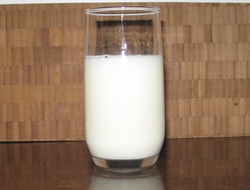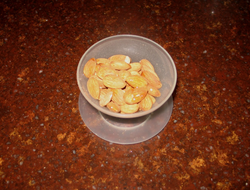Dairy and non-dairy milks: are they nutritionally the same?
Published: March 01, 2019
For decades, if not for centuries, cow’s milk has been a dietary staple in many countries worldwide.
However, over the last 3 decades cow’s milk consumption has decreased (in Canada from 72 L to 55 L per year per person with consumption of homogenised milk falling to 7 L per person per year).
The decrease in homogenised milk consumption has not been accompanied by an equivalent increase in the consumption of lower fat cow’s milk.
However, the market for “non-dairy milk” beverages has multiplied.
Soy ‘milk’ could be considered the prototype of non-dairy milk beverages and has now been joined by ‘milks' derived from a variety of nuts, seeds and grains.
Various beliefs about the health benefits or harms of cow’s milk, and the claimed health benefits of non-dairy milk beverages abound, but are all milk and non-milk beverages equivalent in terms of nutrients and health benefits?
In terms of nutrients only soy beverages (derived from the soy bean, a legume) come close to the nutrients contained in cow’s milk.
As to health benefits, many of the health benefits claimed by the manufacturers of beverages derived from nuts, seeds, and grains pertain to the whole food and not necessarily the derivative.
The production of cow’s milk has come under fire in recent years for its impact on the environment.
However, not much thought is given to processing practices which reduce solid legumes, nuts, seeds, and grains to a liquid.
Lactose intolerance, milk allergies, or health beliefs may influence your decision to switch from consuming cow’s milk to other milk/non-milk beverages.
Perceived nutrient quality and health benefits of these non-milk products may also impact that decision.
Your ultimate choice of milk or non-milk beverage may depend on whether you are looking for a substitute for milk in terms of nutrients, or a beverage that looks like milk and can be used in the same way as milk, but does not necessarily need to have the same nutrient profile.
Cow’s milk and your health
Just one cup of cow’s milk is a good source of several essential nutrients associated with health benefits and lower fat varieties reduce the amount of saturated fat and cholesterol which can help to reduce the risk of heart disease.
Although cow’s milk contains lactose (a naturally occurring sugar) its glycemic rating is low.
Consumption of milk does not appear to be associated with peaks in your blood glucose levels.
Cow’s milk is also inexpensive and compliments plant protein for people who do not consume meat products.
References
1.
Whitney, E. & Rady Rolfes, S. (2005). Understanding Nutrition. Belmont, CA: Thomson Wadsworth
2.
CSPI June 2014, October 2014, CSPI Jan/Feb 2015, Jan/Feb 2014, March 2014, September 2013, May 2013, Jan/Feb 2013, March 2013, April 2012, June 2013, July/August 2011, October 2010, October 2007


